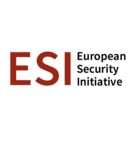

Researchers






Stanford Initiative on European Security
With Russia’s annexation of Crimea and intervention in eastern Ukraine in 2014, Europe is facing the greatest challenge to its stability and security since the Cold War. Russia’s actions have triggered a new era of uncertainty – and possibly sustained competition – between Russia and the United States and its European allies. Russia’s motives may be somewhat opaque, but the effects of its actions have been unmistakable, particularly in generating anxiety among its Eastern Europe neighbors and condemnation internationally.
Stanford is uniquely well-positioned to take on this topic, both as an important matter for scholarship and for policy engagement. Researchers across campus have deep expertise in Russia and Europe, and extensive first-hand experience as policy makers in Washington, D.C. and in foreign capitals.
Given the gravity of the threat to European stability and Stanford’s strength in this realm, the Europe Center, FSI, the Hoover Institution and other university partners have launched a new initiative on European security. Our first aim is to understand the nature of the conflict. For example, is the new threat a replay of decades-old confrontation between Russia and the West? Or are Russia’s actions primarily driven by powerful domestic forces? Our second aim is to develop a long-term strategy to deal with the new challenge Russia presents. How should the United States, its allies and the international system contend with a resurgent Russia?
To undertake this initiative, FSI has formed a faculty working group to examine the issues involved and design possible policy responses together. The group will meet with Stanford and outside experts from the U.S. and around the world. Educating and involving the Stanford community is a critical part of this effort, and Stanford faculty, students, visitors and neighbors will be warmly welcome to participate in a series of public events on Russia, Europe and the United States. Upcoming and recent events are listed below.
The initiative will evolve over time, and may grow to include opportunities in student learning (e.g. classes, fellowships or research assistantships), sustained dialogue with European partners, or other activities that integrate scholarly and policy-oriented objectives.
If you are interested in learning more about this initiative, please contact Magdalena Fitipaldi at magdafb@stanford.edu
[[{"fid":"224177","view_mode":"crop_870xauto","fields":{"format":"crop_870xauto","field_file_image_description[und][0][value]":"","field_file_image_alt_text[und][0][value]":false,"field_file_image_title_text[und][0][value]":false,"field_credit[und][0][value]":"","field_caption[und][0][value]":"","field_related_image_aspect[und][0][value]":"","thumbnails":"crop_870xauto"},"type":"media","field_deltas":{"1":{"format":"crop_870xauto","field_file_image_description[und][0][value]":"","field_file_image_alt_text[und][0][value]":false,"field_file_image_title_text[und][0][value]":false,"field_credit[und][0][value]":"","field_caption[und][0][value]":"","field_related_image_aspect[und][0][value]":"","thumbnails":"crop_870xauto"}},"link_text":null,"attributes":{"width":"870","style":"font-size: 13.008px; width: 200px; height: 80px;","class":"media-element file-crop-870xauto","data-delta":"1"}}]]
Publications
Multimedia
Contact
Magdalena FitipaldiEvents
Eastern European Security with Bronislaw Komorowski, former president of Poland
2:00 PM - 2:00 PM (Pacific)
Russian-American Relations: Present and Future
3:00 PM - 4:30 PM (Pacific)
Mark Leonard: "The connectivity wars: European security and the weaponization of the internet, trade, migration and international institutions"
12:00 PM - 1:15 PM (Pacific)
Ivo Daalder: "America First: Donald Trump and the New World Order"
12:00 PM - 1:15 PM (Pacific)
Bits and pieces: Liberal democracy in the digital era
12:00 PM - 1:30 PM (Pacific)
The Kremlin's Trojan Horses?: Russia and the European Far Right
12:00 PM - 1:15 PM (Pacific)
